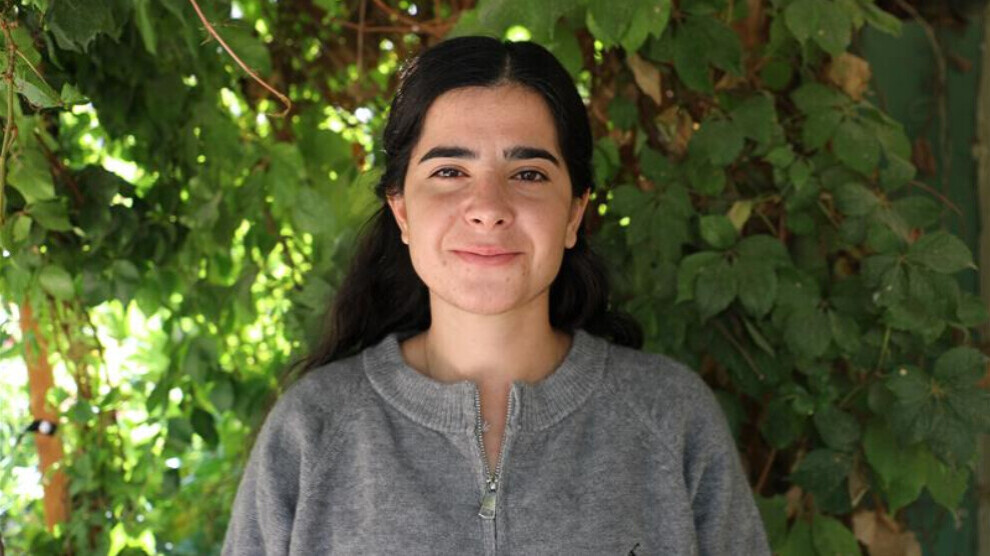A Call from TAJÊ: Give Your Votes to Those Who Work for the Community
Regarding the Iraqi parliamentary elections, Seham Shingali emphasized that society wants to have true representation in Iraqi politics and determine its own destiny.

Shingal – On November 11, the sixth round of the Iraqi parliamentary elections will take place. These elections come amid a turbulent political situation, new challenges, and regional shifts in the Middle East, making their impact on Iraq a matter of great concern.
For many communities, these elections are seen as an opportunity for change and transformation. Shingal holds a particularly important position, as the party that wins there will gain significant influence in shaping Iraqi politics. For this reason, the Yazidi community is striving to send its own representative to the Iraqi parliament, ensuring its voice and role in the country’s political life.
“There is interference from three sides in Iraq”
Discussing the Iraqi elections, their implications for the country and the Middle East, and the significance of Shingal and the Yazidi community, Seham Shingali, a representative of the Diplomacy Committee of the Yazidi Women’s Movement (TAJÊ), said that holding elections in a country like Iraq—where conflicts persist in every corner—offers a glimmer of hope for the people that real change might occur this time.
She added, “Many say the elections will be held, while others claim they may be canceled at the last minute due to American and Israeli pressure. Nevertheless, these elections are extremely important at this moment. Politically and legally, Iraq is facing crises from all directions. Iraqi lands are occupied by three powers: Turkey from one side, Iran from another, and European and other countries as well. There are multiple forces in Iraq, and because of that, no comprehensive solution has been reached for years. Therefore, society approaches these elections with hope for major change.”
“Give your votes to those who work for the community”
Speaking about the Yazidi community’s efforts to send a true representative to the Iraqi parliament, Seham Shingali stated:
“For the past eleven years—even before the genocide—the Yazidi community has sought genuine representation in Iraqi politics. Especially after the genocide, many attempts were made in this direction. The world knows well that the previous elections were neither transparent nor fair. Previously, the Yazidi Freedom and Democracy Party (PADÊ) tried to send a representative, but that attempt was obstructed through deceptive means, preventing PADÊ from entering parliament on behalf of the Yazidi community.”
She added, “Even now, the Kurdistan Democratic Party (PDK) uses money and manipulation to push its own people into parliament—people who act against the Yazidi community and its demands. For example, Mohammed Khalil and Vian Dakhil were in parliament before the genocide, yet the Yazidi community saw with its own eyes that they did nothing for it. Instead, they harmed it and worked only for their party’s interests.”
She emphasized that “in this election process, the Yazidi community seeks to build free representation that reflects its will and to give its votes to those who truly work for the community. We hope our people will support those who genuinely serve them.”
“We will support whoever achieves true representation until the end”
Seham Shingali noted that many campaign statements are far from reality:
“For example, when the election campaign began in the Kurdistan Region, Nechirvan Barzani said, ‘We sacrificed thousands of martyrs to liberate Shingal.’ Those who did not witness the genocide might believe such claims, but the world knows that the PDK was responsible for the genocide. They signed an agreement with ISIS on October 9 and sold Shingal. Everyone knows this. Yet, they shamelessly keep saying, ‘We liberated Shingal, we sacrificed martyrs for it.’”
She added, “In the end, the October 9 Agreement was signed, and later Masoud Barzani admitted that they could not implement it in any way. Despite international and UN support, Turkish pressure prevented its execution. Still, they say the Peshmerga will return to Shingal, as if no massacre ever happened, as if the Yazidi community didn’t endure all this suffering. They will not return—not even in their dreams.”
She continued, “We have been working in this field for eleven years. We will support, to the very end, those who can truly represent our community. We call on our people to participate in the elections with this spirit. We will stand behind anyone who can represent us in parliament and who works for the recognition of the genocide.”
An electoral call for the Yazidi community
In conclusion, Seham Shingali stressed the need for the Yazidi community to give its votes to competent individuals who can honestly represent it:
“The community must take a clear stance against those who betrayed it. The Yazidi people must choose their representatives by themselves—that’s why we are issuing this call. Yazidi women, in particular, must stand firmly against those who betrayed their community and joined the parties linked to those responsible for the genocide.”
She added, “Yazidi women will not allow their community to return to the pre-genocide state of Shingal. Shingal today is not the Shingal of the past. The Yazidi community—its women and youth—possess organization, willpower, and self-defense. Everyone must understand this well: they will not be able to realize their illusions anymore.”
